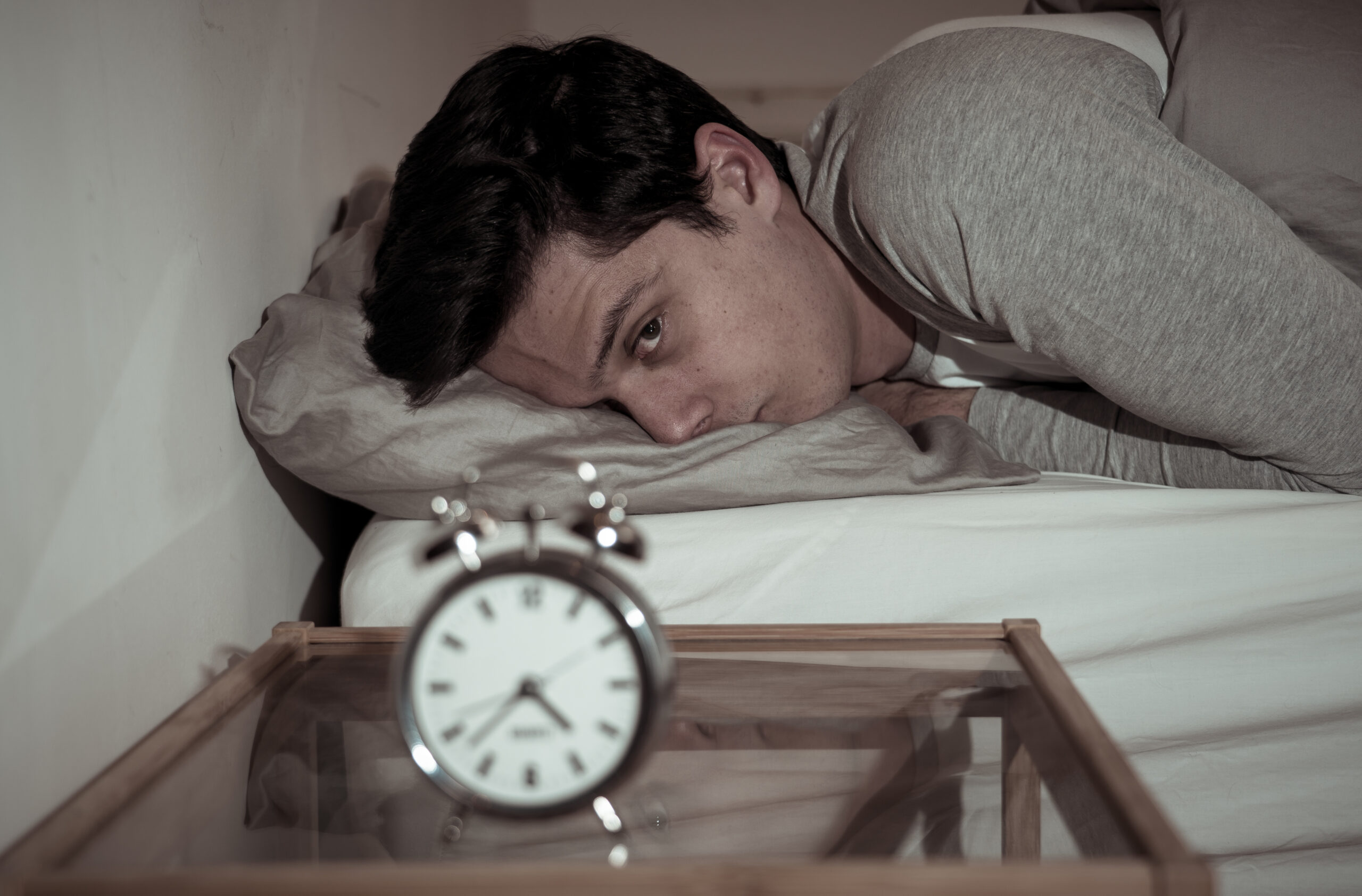
THE IMPACT OF SLEEP
ON MENTAL HEALTH
Sleep is often regarded as a luxury in our fast-paced world. But it is, in fact, a crucial component of our overall well-being, particularly when it comes to mental health. The relationship between sleep and mental health is complex and multifaceted, influencing our emotional stability, cognitive function, and overall quality of life.
Research has shown that insufficient sleep can exacerbate existing mental health conditions, such as anxiety, depression, and bipolar disorder.

The Science Behind Sleep and Mental Health
Research has shown that insufficient sleep can exacerbate existing mental health conditions, such as anxiety, depression, and bipolar disorder. Conversely, mental health disorders can also lead to sleep disturbances, creating a cyclical pattern that can be difficult to break.
When we sleep, our brains undergo essential processes that help regulate emotions and restore mental function. During deep sleep, the brain consolidates memories and processes emotions, making it vital for cognitive health. Lack of sleep disrupts these processes, often leading to increased irritability, mood swings, and cognitive decline.
A well-rested individual is better equipped to handle stress, manage emotions, and engage in problem-solving.

The Role of Sleep in Emotional Regulation
One of the most significant impacts of sleep on mental health is its role in emotional regulation. A well-rested individual is better equipped to handle stress, manage emotions, and engage in problem-solving. Conversely, sleep deprivation can heighten emotional responses, making it harder to cope with everyday challenges.
Studies have indicated that even one night of poor sleep can lead to increased levels of negative emotions and decreased resilience. This heightened emotional sensitivity can lead to a range of issues, from increased anxiety to difficulties in relationships.
Treating these disorders is essential for improving both sleep quality and mental health outcomes.

Sleep Disorders and Their Implications
Common sleep disorders, such as insomnia, sleep apnea, and restless leg syndrome, can significantly impact mental health. Insomnia, for instance, is frequently linked with anxiety and depression, often creating a vicious cycle where anxiety about sleep worsens insomnia, leading to further emotional distress.
Sleep apnea, characterized by interruptions in breathing during sleep, can lead to chronic fatigue and exacerbate symptoms of depression and anxiety. Treating these disorders is essential for improving both sleep quality and mental health outcomes.
Reduce exposure to screens at least an hour before bedtime, as blue light can interfere with melatonin production.

Strategies for Better Sleep
Improving sleep hygiene is critical for enhancing mental health. Here are several strategies to promote better sleep:
Establish a Sleep Routine: Go to bed and wake up at the same time each day to regulate your body’s internal clock.
Create a Relaxing Environment: Ensure your sleeping space is dark, quiet, and cool. Consider using blackout curtains, earplugs, or a white noise machine.
Limit Screen Time: Reduce exposure to screens at least an hour before bedtime, as blue light can interfere with melatonin production.
Practice Relaxation Techniques: Engage in calming activities before bed, such as reading, meditation, or gentle yoga.
Watch Your Diet: Avoid heavy meals, caffeine, and alcohol close to bedtime, as these can disrupt sleep.
If sleep disturbances persist despite implementing healthy sleep habits, it may be time to consult a healthcare professional.

Seeking Help
If sleep disturbances persist despite implementing healthy sleep habits, it may be time to consult a healthcare professional. Cognitive-behavioral therapy for insomnia (CBT-I) and other therapeutic approaches can effectively address sleep issues and their underlying mental health concerns.
In the journey towards better mental health, prioritizing sleep is a crucial step. Understanding the profound impact that sleep has on our emotional and cognitive well-being can empower individuals to make positive changes. By fostering healthy sleep habits and seeking help when needed, we can enhance our mental health and lead more fulfilling lives. INSPIRE

More From INSPIRE Winter 2024 Issue

INSPIRE Magazine: Miranda Trudeau – How This Mom Transformed Pain Into Power
“This is the way forward. For Nathaniel.”

INSPIRE Magazine: HYDRATE – How Much Water Do You Need?
Water is life. It makes up about 60% of the human body, and every cell, tissue, and organ depends on it to function properly. But how much water do you actually need to drink each day?

INSPIRE Magazine: The Impact Of Sleep On Mental Health
The relationship between sleep and mental health is complex and multifaceted, influencing our emotional stability, cognitive function, and overall quality of life.

INSPIRE Magazine: The Power Of Positive Energy
Positive energy is contagious. When we cultivate it within ourselves, we inevitably share it with those around us. This creates a ripple effect, inspiring others to embrace positivity and contribute to a more uplifting environment.

INSPIRE Magazine Cover Story: Kayla Smith Finds Strength Through 130 Pound Weight Loss Transformation
“I thank God for growth. Every step I take is most certainly stronger than the last. God bless the strength in all of us.”

IPL Inspiration/Transformation, Fitness Angels & Evening Athlete Kayla Smith Lands Cover Of Inspire Magazine
“The moment I saw my face on the cover of INSPIRE Magazine, I was overwhelmed with emotion, and tears instantly filled my eyes. It felt like a powerful reminder that I am truly on the path meant for me. This achievement means so much because it reflects the progress, I’ve made by listening to my body, understanding my emotional needs, and finding balance through mindful nutrition and activity.”
More From INSPIRE Magazine

INSPIRE Magazine – Top Inspiration & Transformation Winner Danny Herrera
“Transformation is possible. All it takes is a DECISION! Let’s decide to Level Up today!”

INSPIRE Magazine: Nature Heals – Ecotherapy For Mental Wellness
…as urbanization and technological advancements have increasingly disconnected us from the natural world, the need to reintegrate nature into our lives for holistic well-being has become paramount.

INSPIRE Magazine – How To Make Training More Fun
Why most training programs fail, what you can do to make sure that yours doesn’t, and the steps needed to ensure your program sticks.
